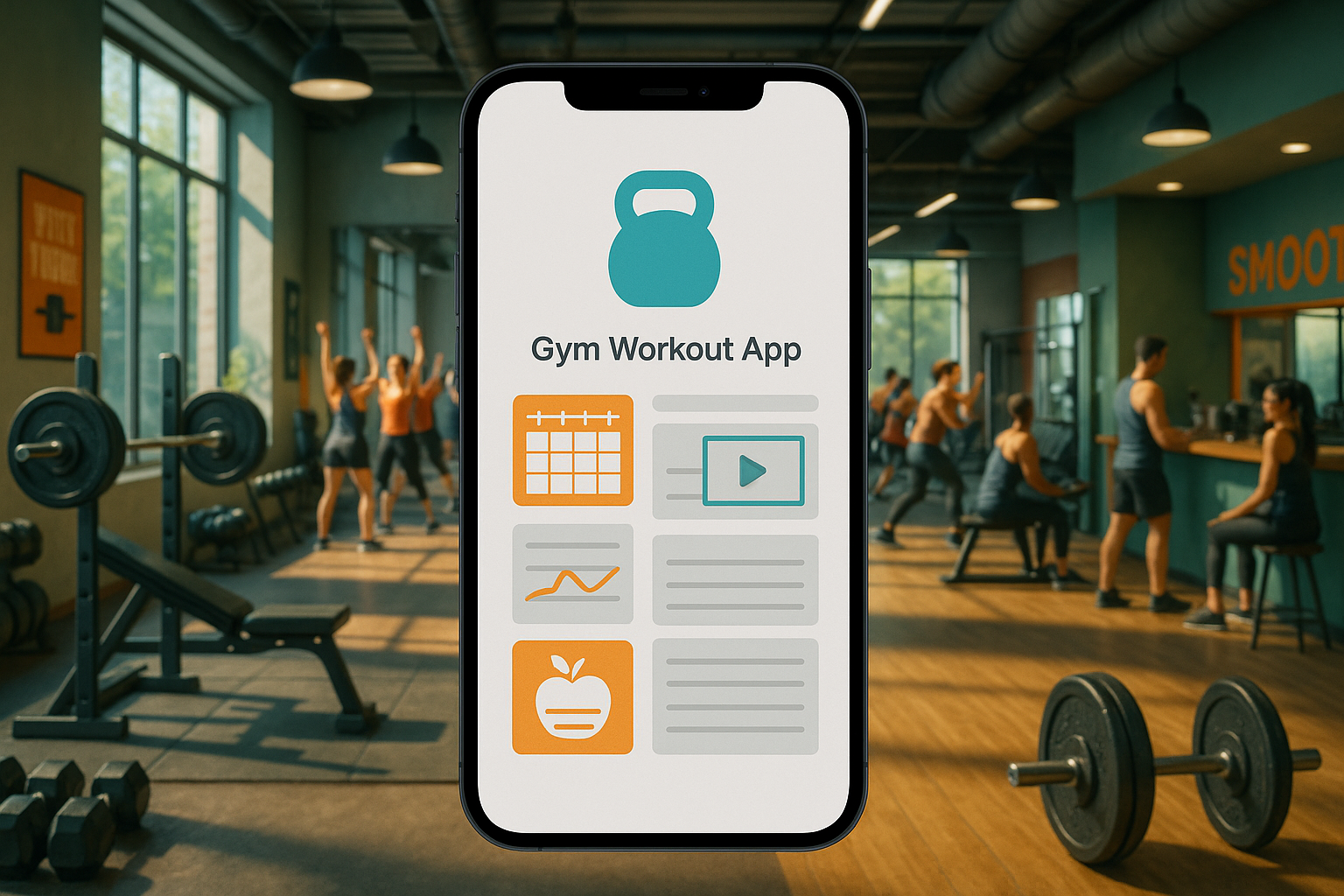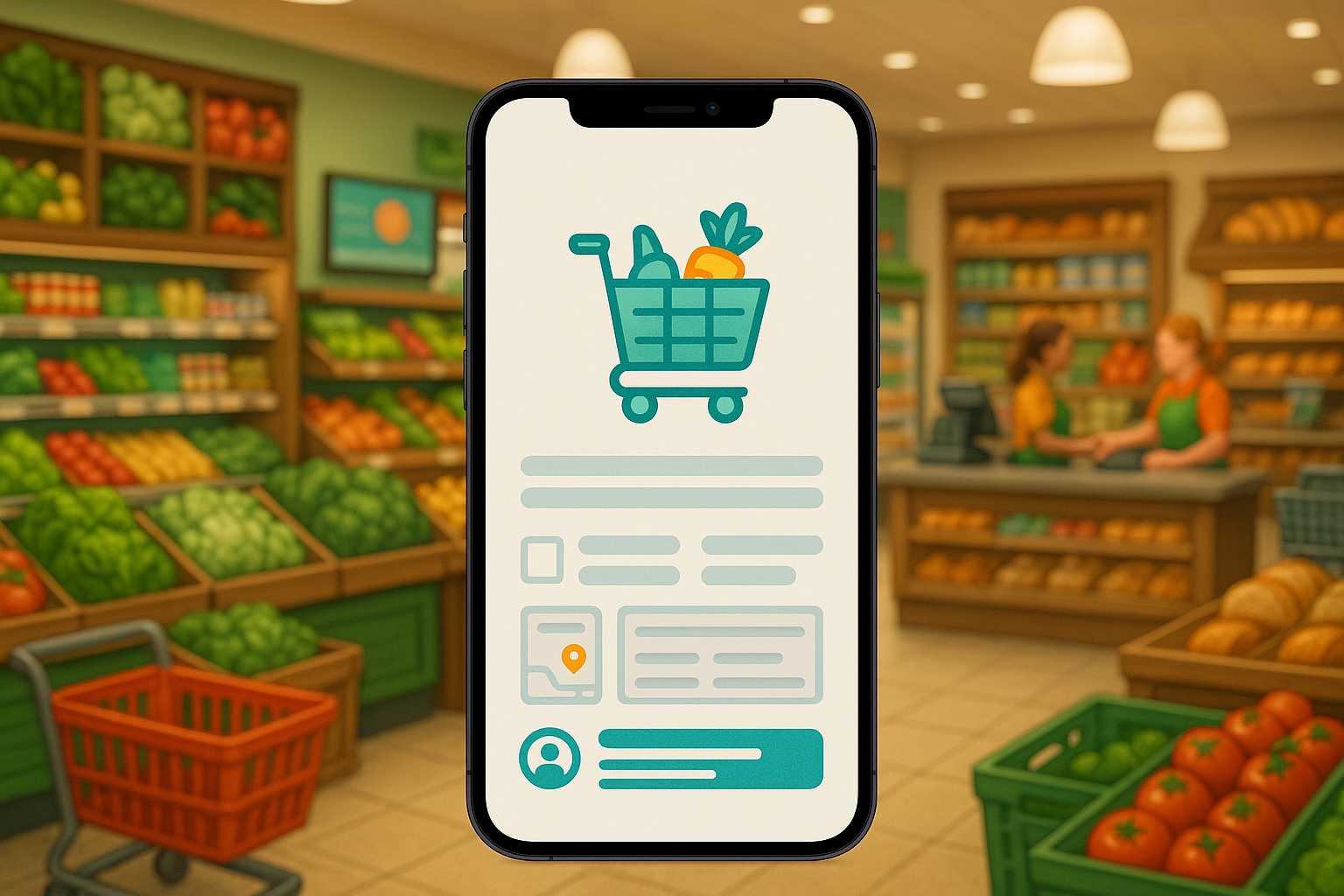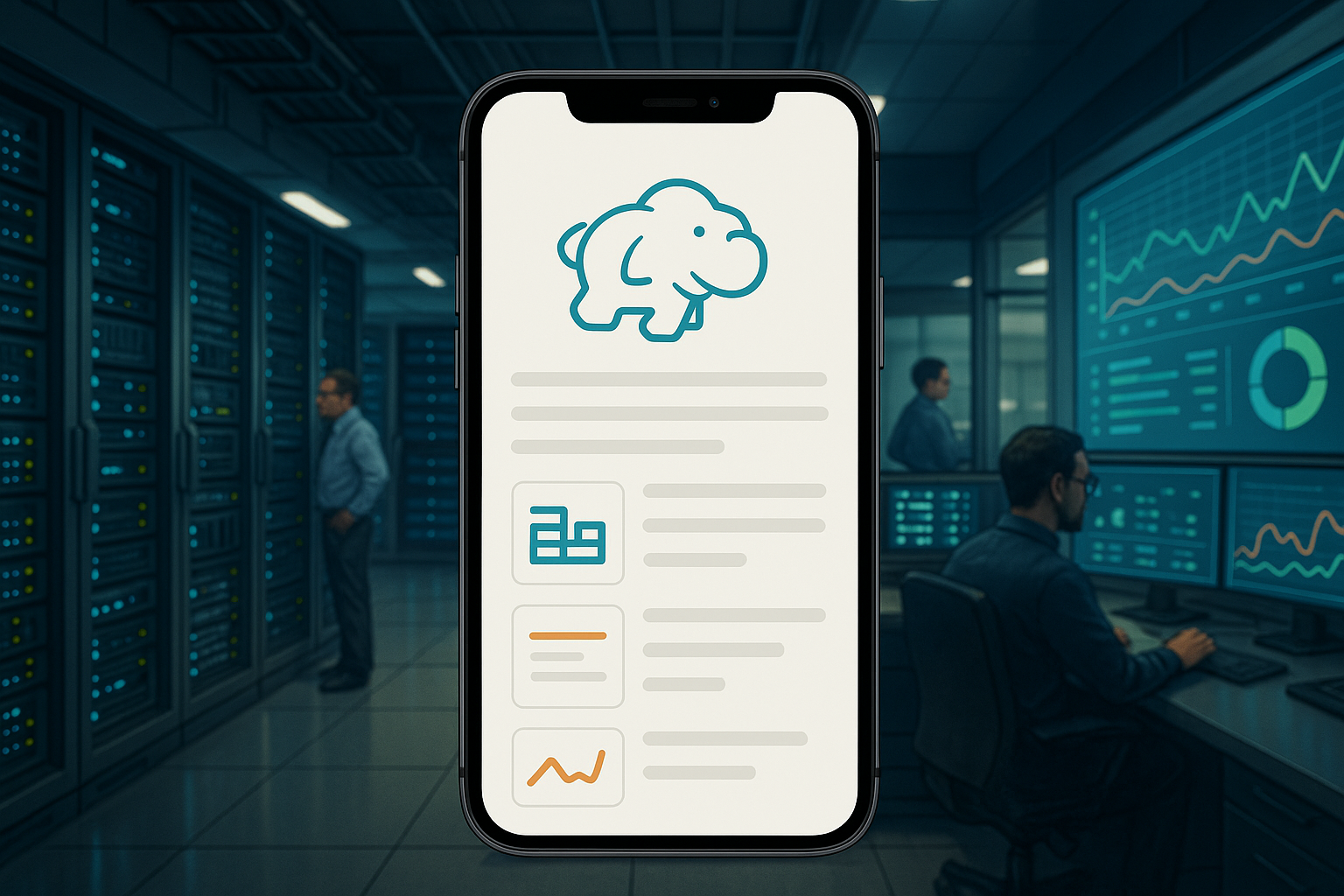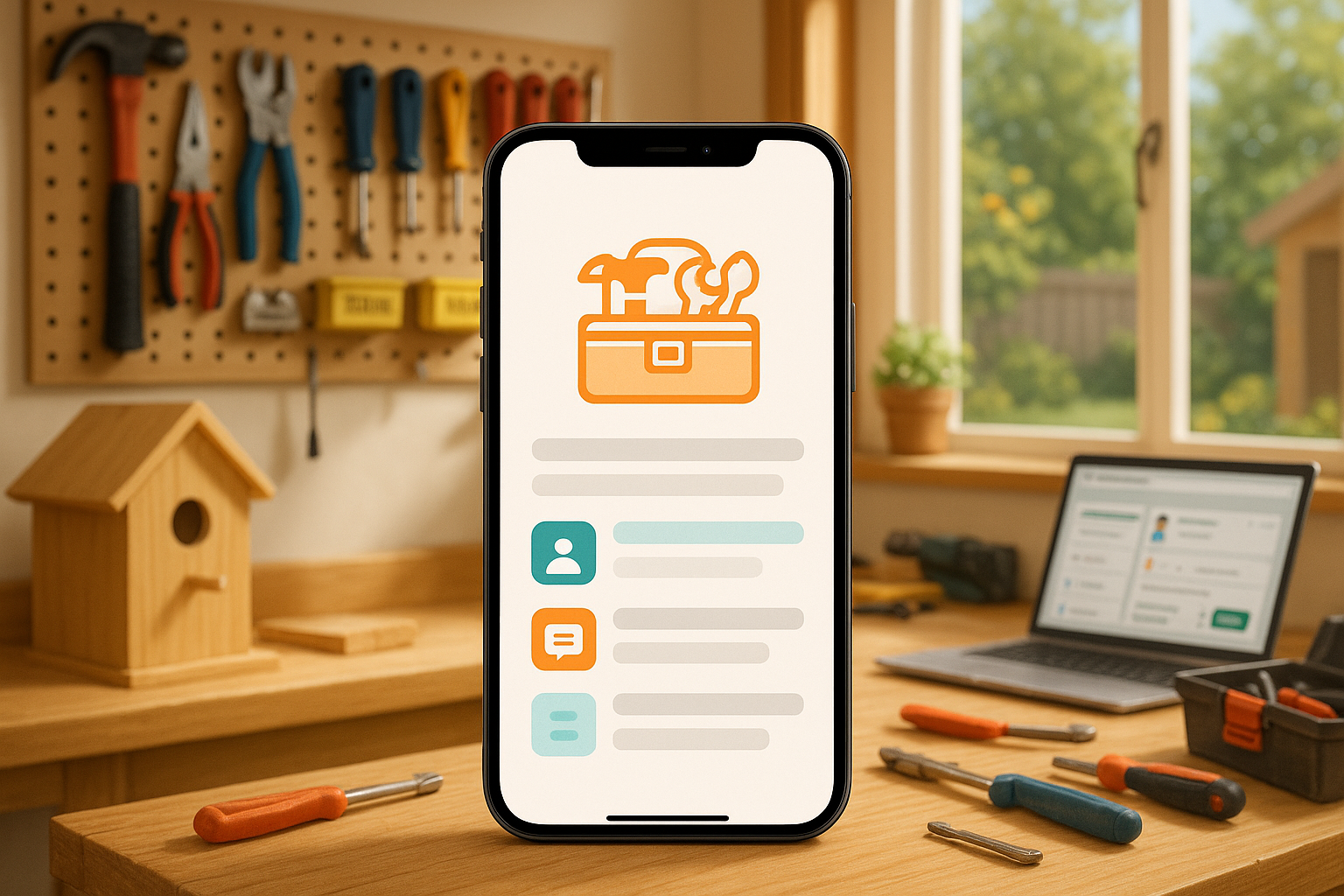The fitness app sector is not just a trend; it’s a significant economic force, creating jobs, stimulating technological advancement, and paving the way for a healthier future. However, launching a successful gym workout app is a formidable challenge. It requires navigating a labyrinth of technical complexities, from real-time data synchronization across countless devices to building a scalable backend infrastructure that can support thousands of users simultaneously. The market is fiercely competitive, demanding continuous innovation to attract and retain users.
This article serves as a comprehensive guide to gym workout app development. We will dissect what constitutes a modern fitness app, explore the immense difficulties of building one in-house, break down the associated costs, and introduce the leading companies in the development space. As a top US AI-powered app development firm, we at MetaCTO have over two decades of experience transforming ambitious ideas into market-leading mobile applications. We understand the nuances of this industry and are here to show you how to build, grow, and monetize your gym workout app the right way, from day one.
What is a Gym Workout App?
At its core, a gym workout app is a mobile application designed to be a user’s digital fitness companion. It empowers individuals to set fitness objectives, follow structured workout routines, track their progress, and ultimately achieve their health and wellness goals. However, a modern, successful fitness application is far more than a simple exercise logger. It’s a sophisticated ecosystem of personalized guidance, data-driven insights, and engaging user experiences.
A comprehensive gym app must be built on a foundation of robust features that cater to the entire user journey.
Personalization and AI-Driven Intelligence
The one-size-fits-all approach to fitness is obsolete. Today’s users expect a tailored experience.
- Personalized Routines: A custom fitness app should allow users to set specific objectives—be it weight loss, muscle gain, or improved endurance—and receive workout plans tailored to their fitness level, preferences, and even the equipment they have available, whether at a commercial gym or in a home-based setup.
- AI Recommendations: The most successful apps leverage Artificial Intelligence (AI) to provide workout recommendations based on a user’s performance history, progress, and stated preferences. This ensures the user is always challenged appropriately.
- Dynamic Adjustments: The app shouldn’t be static. It must evolve with the user. AI-powered features can provide dynamic workout adjustments and progress-based modifications, ensuring the principle of progressive overload is maintained for continued growth.
- Interactive Coaching: AI can also power interactive coaching, offering real-time feedback and smart recommendations tailored to each user’s immediate needs during a workout.
Comprehensive Tracking and Analytics
Data is the backbone of progress. A great fitness app makes tracking seamless and insights actionable.
- Workout Logging: This is a must-have feature. Users need to efficiently log their exercise routines, including repetitions, sets, workout duration, and rest periods.
- Performance Metrics: The app must provide tools to track calories burned and overall fitness progress over time, integrating with fitness trackers and wearables to analyze workout performance and suggest optimizations.
- Advanced Analytics: Top-tier apps go beyond basic logging. They incorporate real-time analytics, AI-driven performance analysis, workout pattern recognition, and even progress forecasting. Interactive performance dashboards with visual charts, muscle activation data, and comparative analytics allow users to see their long-term trends and make informed adjustments.
Rich Content and Guidance
Users look to fitness apps for expertise and motivation. A deep content library is essential.
- Extensive Workout Library: A successful app includes a categorized library of exercise routines covering a wide range of disciplines, including strength training, High-Intensity Interval Training (HIIT), cardio, yoga, meditation, and even rehabilitation exercises.
- Instructional Videos: Video tutorials are a critical feature, allowing users to learn correct form and technique, thereby reducing the risk of injury and maximizing effectiveness.
- Access to Professionals: Many apps integrate with personal trainers, offering users access to real-time coaching, guidance, and personalized support via video calls or in-app chat.
Nutrition and Holistic Wellness
Fitness is not just about exercise; it’s a lifestyle. Integrating nutrition and wellness features creates a more holistic and valuable tool.
- Nutrition Tracking: A comprehensive app should include nutrition tracking, with features like built-in meal planning, macro tracking, and calorie counting. This can be enhanced with tools like barcode scanners for food items and grocery list generation.
- Personalized Diet Plans: AI can be used to generate customized diet plans and personalized meal recommendations tailored to a user’s fitness level, dietary preferences, and workout regimen.
- Wellness and Recovery: To support mental well-being and physical recovery, apps can include guided meditation sessions for stress management and sleep improvement. Recovery tracking, monitoring metrics like sleep patterns and heart rate variability (HRV), provides a complete picture of a user’s health.
Connectivity and Community
A great app seamlessly integrates into a user’s digital life and fosters a sense of community.
- Wearable and App Integration: This is a crucial feature. An app must sync with popular smartwatches and trackers like Apple Watch, Fitbit, and Garmin to monitor heart rate, steps, calories, and sleep in real time. It should also integrate with health platforms like Apple Health, Google Fit, and Strava for multi-device synchronization.
- Engagement Features: To keep users motivated, apps often incorporate gamification elements like virtual fitness challenges, leaderboards, and achievement badges. Social sharing features help build a sense of community and friendly competition.
- Push Notifications: A smart push notification system can remind users of scheduled workouts, send hydration alerts, or deliver motivating messages and updates on fitness challenges.
Reasons It Is Difficult to Develop a Gym Workout App In-House
While the feature list of a great fitness app is enticing, the journey of building one is fraught with technical and strategic challenges. Attempting this process in-house without a specialized, experienced team can quickly become a drain on resources, time, and morale.
The Technical Minefield
The core functionality of a fitness app—syncing real-time data—is a technical minefield. Developers must contend with a fragmented ecosystem of multiple operating systems (iOS, Android), various wireless protocols (Bluetooth, Wi-Fi), and the unique hardware quirks of countless wearable devices. Add flaky network connections to the mix, and you have a recipe for unreliable performance and user frustration. The app’s backend infrastructure must be architected to handle thousands of users logging workouts, syncing wearables, and pushing notifications simultaneously, all in real time and without breaking. This involves managing sensitive health data, complex user flows, and numerous third-party integrations, creating a web of moving parts for any development team.
The Integration Nightmare
Integrating with third-party devices and platforms is a continuous challenge. Each partner—from Apple and Google to Fitbit and Garmin—has its own API, data format, and set of limitations.
Apple HealthKit structures data differently than Google Fit, Fitbit imposes rate limits on its API, and Garmin’s SDK doesn’t always behave the same way on all platforms.
Developers must navigate this disparate landscape, and the challenge doesn’t end after the initial integration. These third-party partners frequently update their SDKs, sometimes without warning, forcing the development team into a constant cycle of maintenance and adaptation just to keep the app functional.
The Unpredictability of the Real World
No matter how rigorous the internal testing, bugs that never appeared in the lab will immediately surface in the wild. A fitness app must be robust enough to handle the chaos of everyday use: poor signal in a basement gym, a dying phone battery mid-run, lost GPS tracking, or an interrupted workout. Ensuring the app remains stable and reliable under these conditions is a significant development hurdle.
The Trap of “Feature Creep”
It is incredibly tempting for a development team to keep adding features, trying to build their full, perfect vision of the app from day one. This is a trap that can lead to several negative outcomes:
- Bloated Application: The app becomes overloaded with features, resulting in a confusing user experience.
- Overwhelmed Team: The development team is stretched too thin, leading to burnout and decreased code quality.
- Delayed Launch: The project timeline gets extended by six months or more as the team chases an ever-expanding scope.
- Exhausted Resources: The project runs out of time, budget, and patience before ever reaching the market.
Hiring a specialized agency like MetaCTO allows you to sidestep these pitfalls. With over 20 years of experience, we’ve navigated these technical minefields countless times. We understand the intricacies of third-party integrations and build resilient apps ready for real-world conditions. Our Rapid MVP Development process is designed specifically to avoid feature creep, allowing you to launch a core, validated product in just 90 days, get to market faster, and evolve your app based on real user feedback.
Different Types of Gym Workout Apps
While many apps blend functionalities, they can generally be categorized into two main types: gym fitness tracking apps and personal trainer apps.
Gym Fitness Tracking Apps
This is the most common type of fitness app. Its primary focus is to empower individual users to take control of their own fitness journey. The core features revolve around self-service tracking and guidance. Users can log their exercise routines, track performance metrics like weight lifted or distance run, monitor their progress over time through detailed analytics, and access a comprehensive library of workout plans and instructional videos. These apps, which include basic and advanced tools like AI-driven insights and wearable device integration, are designed for motivated individuals who want a structured way to manage their fitness independently.
Personal Trainer Apps
This category of app is built around the relationship between a fitness professional and a client. While it includes many of the tracking features of a standard fitness app, its main purpose is to facilitate remote coaching. For personal trainers, these apps are a platform for managing clients, creating and assigning custom workout plans, and monitoring their progress from afar. For users, they offer a direct line to expert guidance, with features like real-time coaching via video or chat, personalized feedback, and accountability. Wearable integration is particularly crucial here, as it offers trainers a remote window into a client’s workout intensity and performance.
Cost Estimate for Developing a Gym Workout App
The cost of developing a gym workout app can vary dramatically based on its complexity, the platforms it supports, and the geographic location of the development team. A simple app with basic features will cost significantly less than a sophisticated platform leveraging AI and supporting a wide range of wearable devices.
Cost by App Complexity and Type
- Simple Apps: A basic diet-tracking app with user registration and social sharing functions will be on the lower end of the cost spectrum. An app like MyFitnessPal has an estimated development cost of $60,000 - $100,000.
- Mid-Range Apps: A more comprehensive fitness app like Peloton, with its rich library of content, has an estimated cost of $100,000 - $150,000. The MVP for an app like BetterMe falls in a similar range.
- Advanced Apps: For an app that supports in-app purchases, geolocation, wearable device integration, and workout tutorials, the cost may exceed $150,000 - $180,000.
- Highly Complex Apps: If your vision requires sophisticated functions like AI-powered personalization, gamification, and live video streaming, the cost can easily be $200,000 or more. A full-featured version of BetterMe is estimated to cost $250,000+.
Cost by Development Phase
The development process is typically broken down into several phases, each with its own associated cost.
| Phase | Estimated Duration (Hours) | Estimated Cost |
|---|---|---|
| Product Discovery | 40-80 | $15,000 - $25,000 |
| Design (UI/UX) | 80-160 | $5,000 - $10,000 |
| Development | 200+ | $50,000+ |
| Testing & QA | 50+ | ~$6,000 |
Cost by Platform and Feature
The choice between a native app (separate code for iOS and Android) and a cross-platform app also impacts the budget.
| Type | Estimated Cost |
|---|---|
| Native App Development | $50,000 - $100,000 |
| Cross-Platform App Development | $25,000 - $70,000 |
Here is a look at the estimated time and cost for individual features and design elements.
| Feature / Element | Average Duration (Hours) | Average Cost |
|---|---|---|
| User Registration | 60 | $3,000 |
| Activity Tracking | 110 | $5,500 |
| Social Sharing | 70 | $3,500 |
| Wireframes & Prototypes | 24-40 | $1,200 - $2,000 |
| App Design (UI) | 80-160 | $4,000 - $8,000 |
Developer Rates by Region
The final cost is heavily influenced by the hourly rate of the development team, which varies significantly by region.
| Region | Average Hourly Rate ($) |
|---|---|
| United States | 100-150 |
| United Kingdom | 80-100 |
| Ukraine | 50 |
| China | 30 |
| India | 20 |
While lower hourly rates may seem attractive, it’s crucial to balance cost with experience, communication, and quality. Partnering with an experienced US-based firm like MetaCTO ensures you receive expert guidance, a streamlined process, and a high-quality product that justifies the investment.
Top Gym Workout App Development Companies
The fitness app sector is crowded, but several top companies are leading the charge, driving technological innovation and economic growth. These companies must constantly navigate challenges like intense market competition, user data security, and long-term user retention to sustain their success.
1. MetaCTO
As a premier US-based mobile app development agency, we at MetaCTO specialize in building, growing, and monetizing AI-enabled mobile applications. With over 20 years of experience, a portfolio of over 120 successful projects, and a 5-star rating on Clutch, we are experts at transforming complex ideas into polished, market-ready products.
Our process is designed for success. We help you Validate your idea with a 90-day MVP, Build the app with expert design and engineering, Grow your user base through A/B testing and analytics, Monetize effectively through subscriptions or in-app purchases, and Evolve your app with the latest technology as your business scales.
Our expertise in AI development is particularly relevant for the modern fitness market. We have a proven track record of implementing cutting-edge technology, as seen in our work with G-Sight, where we used computer vision AI to enhance their training app and successfully converted 10% of customers to annual subscriptions. For Mamazen, we turned a digital content library into a video streaming mobile app that now generates over $500k in annual subscription revenue. We don’t just build apps; we build businesses.
Other Leading Companies
Here are other notable companies that contribute to the fitness and wellness app ecosystem, each with its own specialization.
| Company Name | Founded | Location | Employee Count | Specialization |
|---|---|---|---|---|
| NetVirta | 2013 | Boston, MA | 64 | Smartphone-based 3D body scanning for accurate size recommendations. |
| Wodify Technologies | 2012 | Philadelphia, PA | 89 | Gym management, performance tracking, and online programming software. |
| Orangesoft | 2011 | San Francisco, CA | 77 | Digital product development for startups in healthcare and fintech. |
| 1st Phorm | 2009 | St. Louis, MO | 591 | Health and fitness products with an app for nutrition and workout tracking. |
| Cecropia Solutions | 2010 | Austin, TX | 57 | Custom software and mobile app development for health and fitness sectors. |
| Verv | 2013 | Las Vegas, NV | 67 | Mobile app offering fitness workouts, meditations, and personalized meal plans. |
| Mercury Development | 1999 | Palm City, FL | 243 | App development consulting for healthcare, wearables, and other industries. |
| Yes! Fitness Music | 2015 | Wheatland, OK | 53 | Specializes in workout music and custom mixing technology for fitness instructors. |
| Jackalope Technologies | 2020 | Seattle, WA | 73 | An app to help gig workers and freelancers manage their work and finances. |
| Positive Intelligence | 2012 | San Francisco, CA | 1327 | App-guided program to enhance mental fitness for individuals and teams. |
| Hepto Technologies | 2013 | New Brunswick, NJ | 68 | Mobile and web development, specializing in clones of popular apps like Amazon. |
| GAINZ | 2021 | Plano, TX | 62 | Transforms fitness centers into smart, data-driven facilities with a mobile app. |
| NurseStat LLC | 2009 | Harrodsburg, KY | 92 | A mobile app that helps nurses find and schedule nursing shifts. |
| GYMGUYZ | 2008 | Plainview, NY | 184 | Sells a portable gym system and an accompanying fitness app. |
| Fini, LLC | 2020 | Remote (OR) | 52 | A community platform for fitness influencers to grow their online presence. |
Developing a successful gym workout app is a significant undertaking. It demands a deep understanding of user psychology, a robust and scalable technical architecture, a smart business strategy, and a relentless focus on innovation. As we’ve covered, the path is filled with challenges, from the technical complexities of real-time data sync and third-party integrations to the strategic pitfalls of feature creep and market competition. The costs can be substantial, and the expertise required is highly specialized.
This is why partnering with the right development team is paramount. At MetaCTO, we bring two decades of experience, a portfolio of over 120 successful projects, and deep expertise in the very technologies—like AI and wearable integration—that define a modern fitness app. We guide you through every step, from validating your initial concept with a rapid MVP to growing and monetizing your user base.
Don’t let the complexity of development stand between you and a successful product. Let’s build it the right way, together. Talk with a Gym Workout expert at MetaCTO to integrate your vision into a powerful, engaging, and profitable mobile app.






